Politics and Government: Zionism
Rosalind Preston
Rosalind Preston is a leading British philanthropist and advocate for various Jewish and women’s groups. She was honored with the Order of the British Empire in 1993 for her service work in such groups as WIZO, the National Council of Women, the Board of Deputies of British Jews, the Inter Faith Network UK, and the Jewish Volunteering Network.
Jane Prince
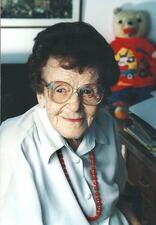
Prose Writing in the Yishuv: 1882-1948
Female Yishuv writers have often been ignored in discussions of Jewish literature from the period. As the sometimes-melancholy tone and escapist themes of their writing show, these women struggled to escape the margins in pre-state Palestine. Nonetheless, the works of these female writers offer important insights into the lives of Yishuv women and paved the way for contemporary women writers.
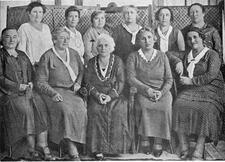
Nehamah Pukhachewsky
Nehamah Pukhachewsky’s writings advocated for Jewish women with a feminist confidence that resonates with readers to this day. Pukhachewsky immigrated from Lithuania to Palestine in 1889, actively participating in agriculture and women’s rights movements along with writing articles for Hebrew journals. She is remembered as one of the first modern Hebrew women prose writers.
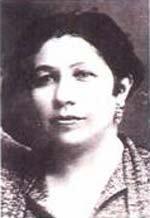
Esther Raab
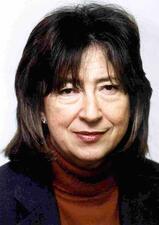
Frances Raday

Rahel Bluwstein
The "founding mother" of modern Hebrew poetry by women, Rahel Bluwstein achieved in death the status of a national cultural icon. Rahel’s affiliation with the avant-garde group of Second Aliyah pioneers to pre-state Palestine, her dedication to Zionist ideals, and her agonizing death made her a beloved pioneering figure in Israel.
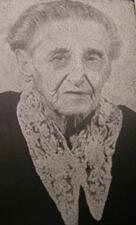
Puah Rakovsky
Puah Rakovsky dedicated her life to working towards the empowerment of Jews, particularly of Jewish women. She was a revolutionary woman, taking on important roles as an educator, translator, organizer of women, and an early socialist Zionist.
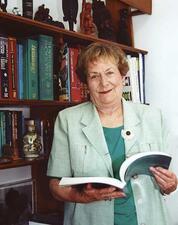
Bracha Ramot
Flora Sophia Clementina Randegger -Friedenberg
Born in Italy in 1825, Flora Sophia Clementina Randegger-Friedenberg was a persistent educator and writer. She is best known for the publication of her Jerusalem journal, which shared her extraordinary experiences in a way that combined messianic hope and the enlightenment ideals of knowledge and progress.
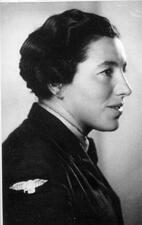
Havivah Reik
Havivah Reik was a Palmah soldier and parachutist who was killed by Nazi collaborators on a secret mission to save thousands of Slovakian Jews.
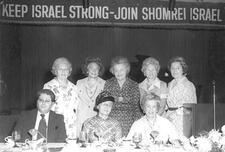
Religious Zionist Movements in Palestine
Religious Zionism, distinguished from the secular Zionists by its religious nature and from the ultra-Orthodox community by its Zionism, consisted of two major movements in the Yishuv: the Mizrachi and the Ha-Po’el ha-Mizrachi, a trade union. Women created their own organizations within these movements but distinguished themselves from the men through their support of women and their interests.
Freda Resnikoff
Freda Resnikoff was a founder and dedicated leader of the Mizrachi Women’s Organization and mother, mother-in-law, and grandmother-in-law of three of its national presidents.

Lilly Rivlin
Lilly Rivlin is a documentary filmmaker whose films are centered around feminism, the Arab-Israeli peace process, Jewishness, and her family relationships. Rivlin’s films The Tribe (1984), Miriam’s Daughters Now (1986), and Gimme a Kiss (2000), all of which explore Jewishness and family, are among her best.
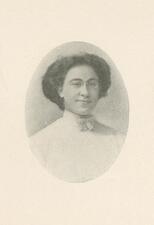
Sophia Moses Robison
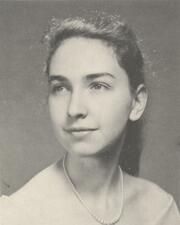
Ora Mendelsohn Rosen
Despite her tragically short career, Ora Mendelsohn Rosen was a brilliant research physician and leading investigator of how hormones control the growth of cells. One of the few female members of the National Academy of Sciences at the time, Rosen’s biochemistry work fundamentally shaped our understanding of diabetes and cancer.
Gertrude Rosenblatt
Gertrude Rosenblatt earned praise for the many ways she helped build the State of Israel. From her role as one of the first directors of Hadassah to her direct service for the needy, she was a dedicated and active Zionist.
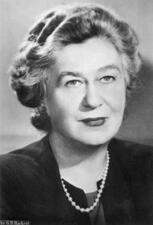
Etta Lasker Rosensohn
An influential philanthropist and social activist, Etta Lasker Rosensohn focused most of her energy on Jewish and Zionist affairs in New York City. Her great passion was Hadassah, where she served on the national board for more than two decades and as the national president.
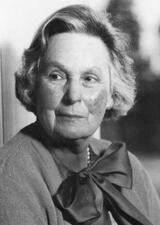
Mathilde Dorothy De Rothschild
Mathilde Dorothy De Rothschild was deeply involved in all facets of Zionist politics. She was an extremely hard worker and proved to be invaluable to Zionist efforts and the Rothschild Foundation.
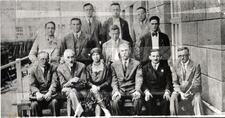
Anna Rozental
Anna Rozental belonged to the generation of Jewish labor activists who had already been active in the founding phase of the General Jewish Labor Bund under the Russian Empire and who were highly respected as “veterans” in the Polish Bund of the interwar period. From her youth on, Rozental’s life was closely tied to the Jewish labor movement in Vilna, where she died in Soviet custody during World War II.
Bernice Rubens
One of Britain’s most successful post-World War II authors, Bernice Rubens was born in Cardiff, Wales, in 1928. In 1970, she became the first woman recipient of the Booker Prize for her novel The Elected Member.
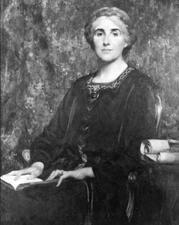
Nina Ruth Davis Salaman
Nina Salaman was a well-regarded Hebraist, known especially for her translations of medieval Hebrew poetry, at a time when Jewish scholarship in Europe was a male preserve. In addition to her translations, she published historical and critical essays, book reviews, and an anthology of Jewish readings for children, as well as poetry of her own.
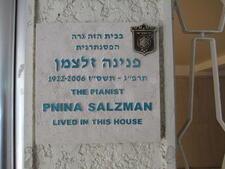
Pnina Salzman
Renowned classical pianist Pnina Salzman was the first Israeli pianist to conquer concert stages in Europe and Asia in the early 1940s, before the establishment of the State of Israel. She also enriched the local music scene with her premieres of Israeli composers, who wrote for her knowing that their work would receive superb interpretation. She won the Israel Prize for her musical achievements.

Jessie Ethel Sampter
Jessie Sampter was an important Zionist activist, writer, and educator. As an influential member of Hadassah, the woman’s Zionist organization, she advocated for an inclusive vision of Zionism. Putting her ideas into practice, she moved to Palestine in 1919. Although Sampter’s disability and non-normative family structure did not align with Zionist ideals of strong, healthy bodies, she championed Zionism, though not always uncritically.
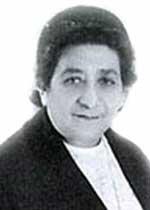
Tova Sanhadray-Goldreich
Tova Sanhadray-Goldreich was a leader of religious Zionist movements in her home in eastern Galicia before making aliyah to Palestine, where she organized a merger of several women’s organizations to form Emunah. She was also the first woman member of the National Religious Party to be elected to the Knesset.


